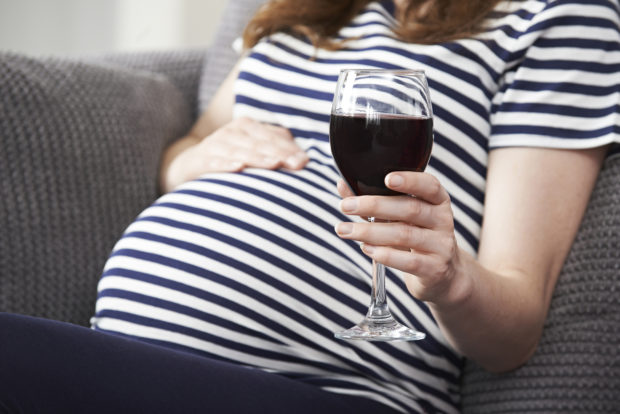Mothers who drink while pregnant could increase child’s risk of depression

Drinking alcohol while pregnant could increase a child’s risk of depression in later adolescence, according to new research. Image: Highwaystarz-Photography/Istock.com via AFP Relaxnews
New UK research has found that children born to mothers who drink while pregnant may have a higher risk of developing depression as teenagers.
Carried out by researchers at the University of Bristol, the new study looked at data from 14,541 pregnant mothers who had taken part in the Avon Longitudinal Study of Parents and Children (ALSPAC), a long-term study that has followed pregnant mothers, their partners and their children since the 1990s.
Of the participants, 4,191 mothers consumed alcohol between 18 and 32 weeks of their pregnancy. The researchers also had access to data on women’s partners’ drinking habits, as well as the rate of depression among the children at age 18.
The findings, published in the journal Alcoholism: Clinical and Experimental Research, showed that children whose mothers drank alcohol while 18 weeks pregnant may have up to a 17% higher risk of depression at age 18, compared with children whose mothers did not drink alcohol.
However, the researchers found little evidence that partners’ drinking was linked to children’s depression. They explain that as a partner’s alcohol consumption is unlikely to have a direct biological effect on the developing fetus, unlike the mother’s, this suggests that the link between maternal drinking and depression may be causal.
“Our study suggests that children whose mothers consumed alcohol at 18 weeks gestation have a higher risk of depression at age 18 compared to those who did not drink alcohol,” commented lead author Dr. Kayleigh Easey. “What was really interesting here is that we also investigated paternal alcohol use during pregnancy and did not find a similar association. Many of the indirect factors that could explain the maternal effects are shared between mothers and partners (such as socio-demographic factors); despite this, we only found associations for mothers drinking.”
“This study also illustrates the importance of considering partner behaviors as well as maternal behaviors—both to help identify a causal relationship and because these may be important in their own right.”
Government guidelines in the UK were updated in January 2016 to advise pregnant women that it is safest to abstain from alcohol consumption during their entire pregnancy. Previous guidelines had advised pregnant women to abstain from alcohol only in the first three months of pregnancy, however, the researchers say that their findings support these new guidelines, which advise complete abstinence from alcohol during pregnancy. CL /ra
RELATED STORIES:
Smoking linked to increased rates of depression among young adults
Feeling grateful doesn’t help with depression or anxiety, says new study